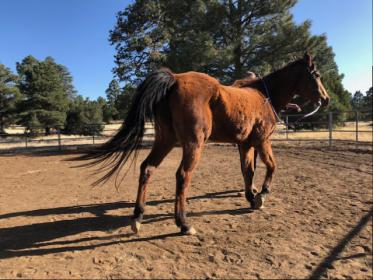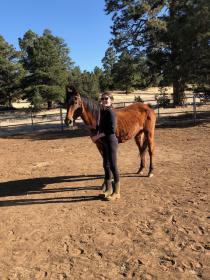There are many types of auctions. You can set reserves. Anytime you sell a horse you are exposing it to any kind of fate as you no longer own that animal. Unless you only sell to somebody you really know well that person could neglect and abuse your animal or sell it to somebody that does or die and the family sends it to auction.
For most individuals I think it is really hard to truely screen a buyer. I found a kitten at New Holland horse auction. I placed her through word of mouth. She worked for somebody I know well. She was friend’s with one of the boarder’s that knew her well and said she would be a good home. She used the local TSC for her dogs shots but showed me the records and they were all up to date. Four years go by and she called me to ask if I would take the cat back since she was gettting foreclosed on. She had never gotten shots for an indoor/outdoor cat. Yes she called me to take Holly back and I did. She abandoned her other cat who thankfully traveled almost a mile and went to my friend who was her former employers farm. He was matted and thin. Yes I protected my cat and feel awful I couldn’t take the other cat but she still abandoned him. Somebody that I screened well for my cat was capable of that and didn’t bother with shots on the cat I placed with her.
So are all the owners of horses that go to Keeneland sales not responsible owners? Some of those horse bring serious money.
There are on-line auctions such as this one: https://www.professionalauction.com/. I think there used to be a pony auction at Pony Finals. I don’t think all auctions are created equal. Yes, I don’t understand people that send horses to Cranbury and New Holland type auctions. But some of the others I listed I don’t have a problem if somebody sold a horse through those as long as they had an appropriate reserve in place.
Any time you sell your horse either auction or private sale you lose control of that animal and are risking that that horse will eventually be neglected or abused either by the person you sold them to or who they sell them too.




 These guys have always flipped horses. There’s just A LOT more visibility now, and a whole new audience.
These guys have always flipped horses. There’s just A LOT more visibility now, and a whole new audience.